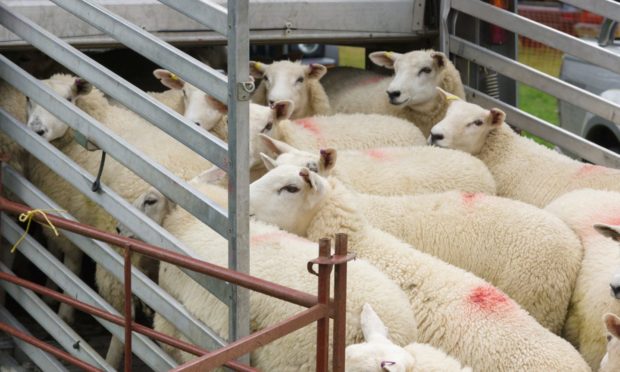Scotland’s red meat industry has united in fierce opposition to Scottish and UK Government recommendations for changes to live animal transport regulations.
If recommendations contained in a Farm Animal Welfare Committee (FAWC) report were adopted, stock would only be able to be moved when the temperature is between 5-30 degrees, and animals could not be transported by sea when “side-to-side or up-and-down motions could occur”.
The Defra consultation has now closed, but the industry has until February 26 to respond to the Scottish Government’s version which seeks views on how the recommendations could be implemented here. The aim, however, is to have consistent legislation across the UK.
A Scottish cross-industry group which includes sheep, beef and pig organisations as well as meat wholesalers and traders, auctioneers, the farmers’ union and young farmers groups, insists that if the proposals were implemented they would have a devastating impact on Scotland’s red meat supply chain.
In a submission. the Red Meat Resilience Group (RMRG) states that prohibiting transport when the external temperature is below five degrees would effectively rule movement from November to March in Scotland and adds that the proposals don’t reflect the already robust systems and safeguards the Scottish livestock industry has in place.
The FAWC report states that transport should only occur when essential, but there is a lack of slaughtering capacity in Scotland, with more than half of the sheep and pigs born here slaughtered outside the country each year.
There are also industry concerns over the impact restrictions on live exports could have on farmers and crofters on Scottish islands who send stock to the mainland for finishing every year. According to Scottish Government regional census data for June 2020, there were nearly 825,000 sheep and 125,000 cattle on Scotland’s islands which could be impacted.
RMRG chair, Kate Rowell said: “In Scotland we operate under some of the highest animal welfare standards in the world. Our whole-of-life whole-chain assurance schemes, which are supported and approved by the SPCA, Scotland’s independent animal welfare charity, means that farmers, hauliers, auction marts, processors and feed merchants must adhere to standards to ensure the best quality of life for animals throughout the supply chain.”

